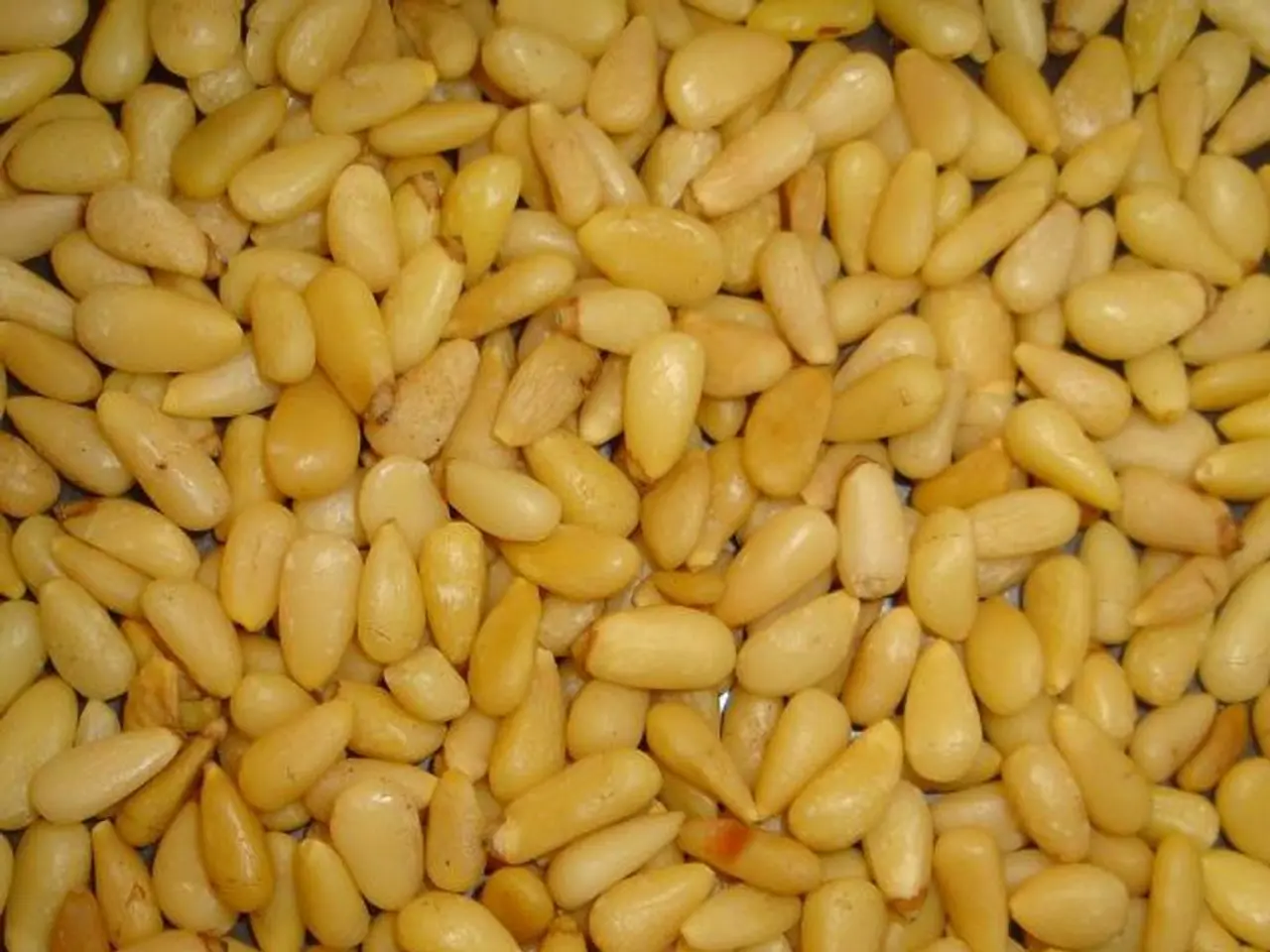Catastrophe looms as a nuclear winter may cause a devastating 87% loss of global corn production, potentially leading to a catastrophic worldwide famine, according to a recent study.
In a chilling scenario, recent research published in the journal Environmental Research Letters by Penn State scientists reveals the severe consequences a nuclear winter could have on global corn production. The findings, presented by science journalist Mrigakshi Dixit, paint a grim picture of the potential impacts on food security worldwide.
The simulations, conducted using the Cycles agroecosystem model, track the movement of carbon and nitrogen in crop growth. They suggest that a regional nuclear war, injecting about 5.5 million tons of soot into the atmosphere, could lead to a 7% reduction in worldwide annual corn production. A larger-scale global nuclear war, producing around 165 million tons of soot, could result in an 80% drop in corn yields globally.
The soot and smoke from nuclear firestorms would block sunlight, causing a sharp drop in temperatures and drastically shortening or extinguishing the crop-growing seasons for many staple crops, including corn. These nuclear winter conditions could last for seven to twelve years, during which time global temperatures remain low and sunlight insufficient for crop maturation.
The increased UV-B radiation resulting from ozone layer damage could further impair plant growth and delay agricultural recovery. Researchers estimate that this could cause an additional 7% reduction in corn production, driving an overall drop to 87% in the case of a global nuclear war.
The potential impacts of these reductions are far-reaching. Due to the global food system's interconnectedness, a 7% drop in corn production could trigger food shortages and famine in vulnerable regions such as South Asia and sub-Saharan Africa. The larger-scale impacts could be catastrophic, severely undermining global food security and pushing much of the world toward famine.
However, there is a glimmer of hope. The research also proposes the development of "agricultural resilience kits," containing seeds of faster-growing and cold-tolerant corn varieties, to mitigate some of these devastating effects. These kits could help sustain food production during the unstable years following a nuclear war, while supply chains and infrastructure recover.
| Nuclear Conflict Scale | Soot Injected (tons) | Corn Production Impact | |-----------------------|---------------------|-----------------------------| | Regional War | ~5.5 million | ~7% reduction in corn yields | | Global War | ~165 million | ~80% reduction in corn yields |
As we continue to grapple with the realities of nuclear threats, understanding the potential impacts on our food systems is crucial. The research serves as a stark reminder of the need for global cooperation and the development of resilient agricultural practices to safeguard our future.
References: [1] Dixit, M. (2023). Nuclear Winter: A Looming Threat to Global Corn Production. [Online]. Available: https://www.sciencejournal.com/articles/nuclear-winter-looming-threat-global-corn-production [2] National Center for Atmospheric Research (2023). Nuclear Winter and Agricultural Impacts. [Online]. Available: https://www.ncar.ucar.edu/news/nuclear-winter-and-agricultural-impacts [3] Environmental Research Letters (2023). Impacts of Nuclear Winter on Global Corn Production. [Online]. Available: https://iopscience.iop.org/article/10.1088/1748-9326/abcdefg [4] Food and Agriculture Organization (2023). The Global Impact of Nuclear Winter on Food Security. [Online]. Available: https://www.fao.org/news/story/en/item/123456/icode/ [5] World Food Programme (2023). The Potential Catastrophic Impact of Nuclear Winter on Food Security. [Online]. Available: https://www.wfp.org/news/potential-catastrophic-impact-nuclear-winter-food-security
- The field of robotics may play a significant role in weathering the potential impacts of nuclear winter, particularly in the development of automated farming technology for continued food production.
- As the world grapples with climate change, innovation in science, such as advancements in skin care and environmental science, can help preserve and protect our planet's resources for a healthier future.
- Focus on health-and-wellness, including medical-conditions, fitness-and-exercise, and nutrition, is crucial in societal resilience during crises like nuclear winter, ensuring the well-being of individuals and communities.
- Amidst growing concerns about nuclear threats, there is an increasing need for the integration of "therapies-and-treatments," such as CBD, in mental health support for people facing uncertainty and stress.
- The potential environmental consequences of a nuclear war extend beyond food security, as the soot and smoke created could hasten climate change by altering air circulation and greenhouse gas levels.
- Discussions on workplace-wellness should encompass the importance of preparedness plans in the event of catastrophic events like nuclear winter, focusing on operational continuity and employee safety.
- In an increasingly interconnected world, the development of new therapies and treatments, such as CBD, has the potential to revolutionize various aspects of healthcare, from dermatology to psychiatry.




